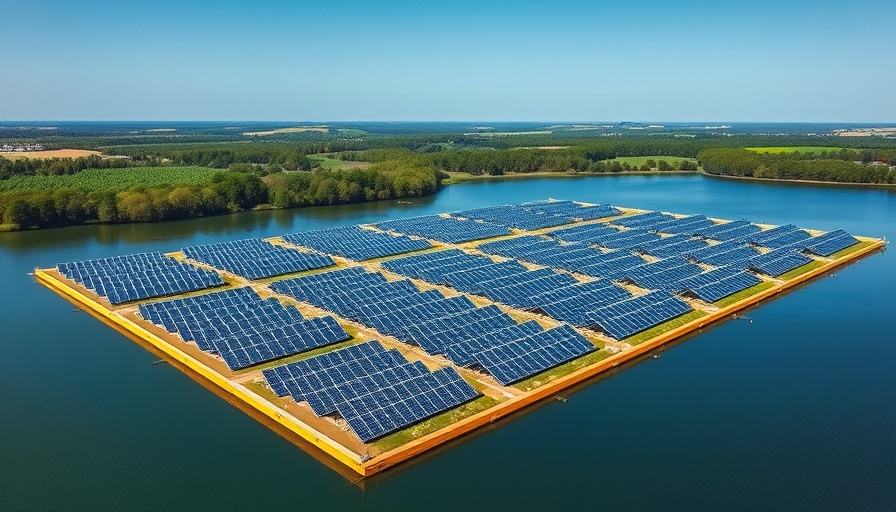
The Dawn of a New Era in Solar Power
On June 20, France opened the doors to the largest floating solar power plant in Europe, known as Les Îlots Blandin. Built on a former gravel extraction site in Perthes, this innovative solar farm boasts a whopping capacity of 74.3 megawatts (MW), enough energy to power approximately 37,000 homes annually. With over 135,000 photovoltaic panels adorning floating platforms, this project not only harnesses the sun's energy but does so with minimal disruption to the environment, making it a shining example of what can be achieved when technology meets ecological mindfulness.
Why Floating Solar Farms Are the Future
Floating solar farms provide several advantages over traditional land-based solar installations. Notably, the cooler temperatures of water help improve the efficiency and longevity of the solar panels, while simultaneously minimizing issues like bank erosion and water evaporation—a crucial factor during times of drought. By utilizing previously industrial sites for such developments, this project helps preserve valuable land while promoting renewable energy. How cool is that?
The Local Impact and Community Commitment
Corentin Sivy, the development director for Q Energy France, emphasized the importance of understanding local dynamics to create projects that are both technically sound and socially responsible. The collaboration with local communities ensures that projects like Les Îlots Blandin are crafted in harmony with the surrounding environment and stakeholders, paving the way for future renewable energy ventures. Lucas de Haro, CEO of Velto Renewables, expressed a long-term vision: "We are here to stay. Our mission is to develop, operate and support projects over the long term, in harmony with local specificities." This forward-thinking approach not only benefits the present community but inspires future sustainability endeavors in the region.
Money Matters: The Economics of Floating Solar
While the environmental benefits of floating solar are clear, the financial realities pose challenges. The installation of floating solar panels requires specialized equipment, often leading to higher costs compared to traditional solar farms. However, Les Îlots Blandin’s success was bolstered by private investment, illustrating the essential role of public-private partnerships in expanding renewable energy projects. According to the World Economic Forum, fostering these partnerships is vital as we seek to transition to cleaner energy sources across the globe.
Setting a Precedent for France’s Renewable Energy Goals
As of 2022, renewable energy accounted for 24.2% of France's total electricity generation, largely driven by hydropower and wind. However, projects like Les Îlots Blandin are crucial for the country to reach its ambitious goal of net-zero emissions by 2050. By tapping into floating solar technology and other innovative projects, France can diversify its energy mix while supporting sustainability.
Taking Action towards a Sustainable Future
The emergence of floating solar power plants serves not only as an environmental boon but also as a potent reminder of what collective action can achieve in the face of climate challenges. For eco-conscious individuals and families, the success of Les Îlots Blandin is a call to consider how they can contribute to sustainability efforts in their communities. Whether it’s advocating for renewable energy in local policies, reducing energy consumption at home, or supporting businesses that prioritize sustainable practices, every action counts. Together, we can create a sustainable future, one floating solar farm at a time!
 Add Row
Add Row  Add
Add 




Write A Comment